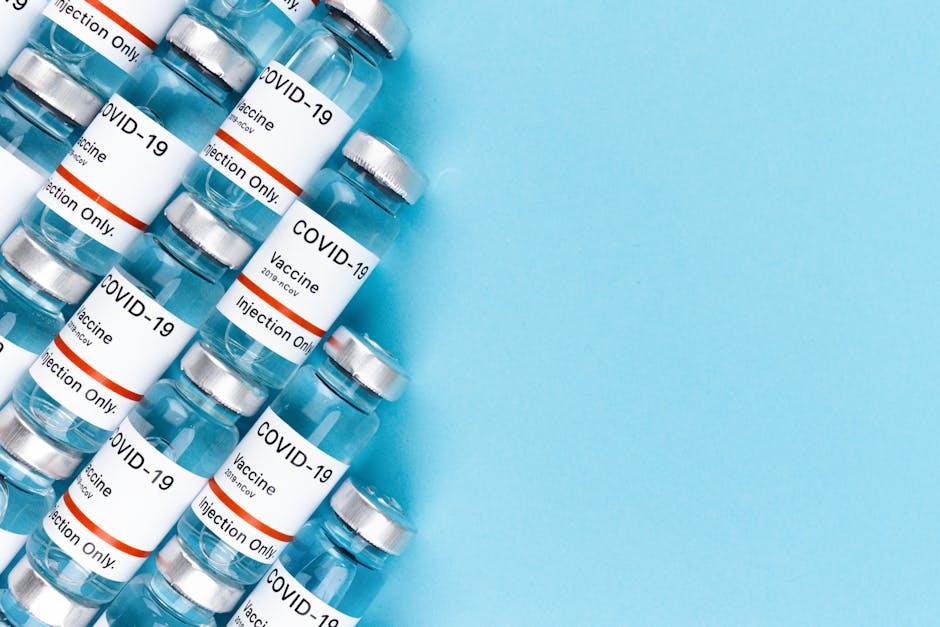FDA Approved COVID-19 Vaccines: A Comprehensive Guide to Safety, Efficacy, and Availability
The COVID-19 pandemic dramatically altered the global landscape, necessitating the rapid development and deployment of vaccines to combat the virus. The Food and Drug Administration (FDA) played a crucial role in this process, rigorously evaluating and authorizing several COVID-19 vaccines for emergency use and, subsequently, full licensure. This comprehensive guide delves into the intricacies of FDA approval processes, safety profiles, efficacy data, and the current availability of these life-saving vaccines.
The FDA’s Role in COVID-19 Vaccine Approval
The FDA’s authorization and approval of COVID-19 vaccines followed a rigorous, multi-stage process, prioritizing both safety and efficacy. This process differed slightly from the typical drug approval pathway, given the urgency of the public health crisis. However, the FDA maintained its high standards, implementing robust data requirements and independent review processes. The key phases involved:
- Pre-clinical Testing: Extensive laboratory and animal studies were conducted to assess the vaccine’s safety and potential efficacy before human trials.
- Phase 1 Clinical Trials: Small-scale human trials to evaluate safety, dosage, and initial immune responses.
- Phase 2 Clinical Trials: Larger trials to further assess safety and efficacy, refining dosage and identifying potential side effects.
- Phase 3 Clinical Trials: Large-scale, randomized controlled trials involving thousands of participants to confirm efficacy and thoroughly assess safety and side effects.
- Emergency Use Authorization (EUA): Based on promising Phase 3 data, the FDA granted EUAs for several vaccines, allowing their distribution and use while the review process for full licensure continued.
- Full Licensure: After extensive review of the complete data package, including long-term safety monitoring, the FDA granted full licensure to several COVID-19 vaccines, signifying a higher level of regulatory scrutiny and confidence.
The FDA’s rigorous process involved independent review by advisory committees comprised of external experts, ensuring transparency and objective evaluation. This rigorous process aimed to minimize risks and maximize public safety.
Currently Approved COVID-19 Vaccines
Several COVID-19 vaccines have received either EUA or full licensure from the FDA. The specific vaccines available may vary depending on geographical location and evolving circumstances. Information regarding specific vaccines, including their manufacturers, should be confirmed through official sources such as the FDA website and the Centers for Disease Control and Prevention (CDC).
mRNA Vaccines
mRNA vaccines, like those produced by Pfizer-BioNTech and Moderna, utilize messenger RNA (mRNA) technology to instruct the body’s cells to produce a harmless piece of the virus’s spike protein. This triggers an immune response, preparing the body to fight off the actual virus if encountered.
Viral Vector Vaccines
Viral vector vaccines, such as the Johnson & Johnson/Janssen vaccine, use a modified, harmless virus to deliver genetic material encoding the virus’s spike protein into the body’s cells. This also triggers an immune response, building immunity to COVID-19.
Safety and Side Effects of FDA-Approved Vaccines
While extremely effective, like all medications, COVID-19 vaccines carry the potential for side effects. The vast majority of these side effects are mild and temporary, such as pain at the injection site, fatigue, headache, muscle aches, and fever. Serious side effects are rare. The FDA continuously monitors vaccine safety through various surveillance systems, including the Vaccine Adverse Event Reporting System (VAERS).
It’s crucial to report any suspected adverse events following vaccination to VAERS or your healthcare provider. This information contributes to the ongoing monitoring of vaccine safety and helps identify any rare but serious side effects that may require further investigation.
Efficacy of FDA-Approved Vaccines
Clinical trials demonstrated high efficacy rates for the FDA-approved COVID-19 vaccines in preventing severe illness, hospitalization, and death. While efficacy rates might vary slightly depending on the specific vaccine and the circulating viral variants, the vaccines have proven to be highly effective in reducing the severity of COVID-19 infection.
The ongoing evolution of the virus, with the emergence of new variants, highlights the importance of staying updated on vaccine effectiveness and the potential need for booster shots to maintain high levels of protection.
Vaccine Availability and Distribution
The distribution of FDA-approved COVID-19 vaccines has been a massive logistical undertaking. Various strategies have been employed to ensure equitable access to vaccines, particularly targeting vulnerable populations. Information on vaccine availability, eligibility, and locations for vaccination can typically be found through government health websites and local healthcare providers.
Addressing Vaccine Hesitancy
Vaccine hesitancy poses a significant challenge to achieving widespread immunity. Addressing concerns about vaccine safety and efficacy requires transparent communication, accurate information dissemination, and addressing misinformation effectively. Credible sources of information, such as the FDA and the CDC websites, are invaluable resources for individuals seeking to make informed decisions regarding vaccination.
The Future of COVID-19 Vaccines
The ongoing research and development efforts for COVID-19 vaccines include exploring new vaccine technologies, improving efficacy against emerging variants, and developing more convenient vaccine formulations. The FDA’s role in evaluating and authorizing these future advancements remains paramount in protecting public health.
Conclusion
The FDA-approved COVID-19 vaccines represent a remarkable scientific achievement, providing a powerful tool in combating the pandemic. Understanding the FDA’s rigorous approval process, the safety profiles of these vaccines, and their high efficacy rates are crucial for informed decision-making. Continuous monitoring of vaccine safety and effectiveness, along with addressing vaccine hesitancy, remain essential to achieving widespread immunity and mitigating the impact of COVID-19.

